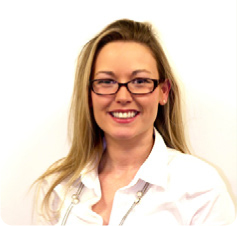
 The board of the Joint Council of Cosmetic Practitioners is made up of various professionals who ensure the organisation runs smoothly
The board of the Joint Council of Cosmetic Practitioners is made up of various professionals who ensure the organisation runs smoothly
A nurse, a professor and an environmental health officer walk into a board room—it sounds like the start of an odd joke, but these are just three of the varied professionals that sit on the board of the Joint Council for Cosmetic Practitioners (JCCP). For some people in the non-surgical aesthetics community, there remains some mystery around the JCCP: who they are as a council, who they are as individuals, why these individuals reside on the committees and what they do. From the outside, it is difficult to understand the work that the council does and the experience and motivations of the people in it. While the council is a bit of a motley crew, there is some significant logic behind the mishmash of professionals who steer it, and something to note is the several professionals on the board and committees who do not practise in aesthetics. This two-part article explores how some of those people came to be part of the JCCP and the work that they lead.
Forming the council
The JCCP was formed following the publication of the Health Education England (HEE) Aesthetic Education and Training (2015), which recognised the need for an overarching register that allowed the public to locate practitioners based on their qualifications and experience associated with different aesthetic treatments that they offer, but also to set benchmarks and policies in areas such as qualifications, competence, regulatory compliance, prescribing and premises standards.
At the helm of the Council is Executive Chair, Professor David Sines, someone who has grown increasingly recognisable to many within the aesthetics sector through his talks and interviews on the various issues within non-surgical aesthetics.
Following his diligent work with HEE, David was invited and appointed by the founding bodies, the British Association of Cosmetic Nurses (BACN) and British College of Aesthetic Medicine (BCAM), for the difficult but important task of forming and steering the JCCP. Since that time, the JCCP has evolved as an autonomous charity, placing patient safety and public protection at the heart of its mission.
So, why appoint someone external and generally inexperienced within aesthetics? Many of the HEE recommendations posed major challenges within a sector of professionals who were often at odds with each other and operated within the context of a cultural void of established rules and standards around practice and education, thus making the task of forming the JCCP a difficult and challenging one. Therefore, it was vitally important to appoint a leader who would firstly not personally benefit from any decision-making, but could also simultaneously remain impartial, objective, diplomatic and conscious of governance, clinical and educational processes. David has a history in healthcare, education and clinical policy that speaks for itself, with the early days of his career spent in nursing. This escalated to wide-ranging roles from Pro Vice-Chancellor and Executive Dean of the Faculty of Society and Health at Buckinghamshire New University, Executive Dean for Health and Social Care at London South Bank University, Head of School of Health Sciences at the University of Ulster and several appointments at Health Education England, the Nursing and Midwifery Council (NMC) and UK Central Council for Nursing, Midwifery and Health Visiting (UKCC), to name a few. It is this sort of experience and perspective that has led to much closer working relationships or memorandums of understanding with the professional statutory regulating bodies, the Office of Qualifications and Examinations Regulation (OFQUAL) and Parliament. As a regarded and awarded healthcare professional, David's priority is safety and awareness for the patient. Under his direction, the JCCP Board of Trustees and the full Council are constantly re-centred back to this mission, regardless of their personal opinion or experiences.
Assembling educational frameworks
One of the JCCP's biggest undertakings is to form educational frameworks that result in competent and safe practitioners. The Education and Training Committee are truly one of the great workhorses of the council. They have one of the most difficult tasks of first pinning down curriculums and pathways for competence in the different modalities, and, secondly, designing fair systems to assess and rubber-stamp those already working within non-surgical aesthetics. One of the biggest pressure points here is that there are swathes of practitioners, on one hand calling out for more rigorous training and specialised qualifications, but among the same groups, there are very few who would like to go through an assessment process themselves to prove that level of competence. This creates immense pressure for the committee attempting to design these processes, and praise is often not forthcoming in such a difficult position. Like much of the council's work, the first area of focus has been on injectables, as they grow in popularity and, equally, risk. As we saw a rise of unscrupulous individuals offering subpar and unsafe treatments, we are now witnessing this rapidly turn into unscrupulous training for increased prices, feeding into this vicious cycle of bad teaching and bad practice, and so, it takes a person of great drive, principles and expertise to navigate these problems.
The Education and Training Committee
Chair of the Education and Training Committee, Associate Professor, Dr Anne McNall, is a nurse by background who does not practise in aesthetics, but found herself involved when she led on the development of one of the first Level 7 Masters Programmes in Aesthetics at Northumbria University in 2016. Anne specialises in research into large-scale workforce development needs in many different health and social care contexts, from sexual health to positive behavioural support and development of appropriate qualifications in each sector. Her healthcare background and tenure at Northumbria University brings an invaluable knowledge of education routes and levels, regulatory standards, curriculum development, approval, delivery and assessment of qualifications for safe practice. For institutes and training companies wishing to enter the JCCP register as Level 7 Injectable course providers, the process of building the curriculum and developing assessment is demanding for both the provider and assessor, but an incredibly important one as the council looks to instil a higher standard of education in aesthetics across the country.
Anne and her team have worked tirelessly in trying to make order out of disorder in the sector, as we have witnessed unsubstantiated promises of ‘qualifications’ and lucrative careers in aesthetics, with intentional misuse of language, such as ‘fully accredited’, ‘equivalent to Level 7’ and ‘continuing professional development (CPD)-qualified’, to prey on practitioners who are unaware of the lack of quality assurance and how to recognise good courses. She continues to inform and lobby bodies such as OFQUAL and the All-Party Parliamentary Group (APPG) in Beauty Aesthetics and Wellbeing to mandate regulated and quality-assured qualifications that ensure a high standard of learning and assessment that lead to occupational competence, rather than a patchwork curriculum on a training conveyor belt that concentrates on profit over patient safety.
Bringing order to chaos
Working regularly hand-in-hand with the Education and Training Committee is Sally Taber, a patron within the aesthetic sector who was the first to create a register of healthcare practitioners at a time when there was considerable opposition to this notion, before many understood how chaotic and hazardous the industry would become. Sally also has a wide-ranging career in both public and private healthcare, notably as a transplant coordinator in dialysis and transplantation at St Mary's Community Health Campus, Portsmouth, an independent sector adviser at the Royal College of Nursing and Director of Nursing at London Bridge Hospital. She has championed better standards and tighter regulations in non-surgical cosmetic interventions for many years, and is an immensely important supporting pillar to the JCCP. This can be seen in her role in penning the JCCP Premises Standards and, more recently, our close partnership with the Advertising Standards Authority (ASA), which, with Sally's guidance and work with complainants, was able to issue official sanctions against several unethical training establishments and clinics that were flouting advertising codes to astonishing levels.
In part two of this article, we will get acquainted other members of the board and committees who have committed themselves to creating a safer landscape of aesthetics in the UK and explore the unexpected alliances that have been formed for this greater cause.



